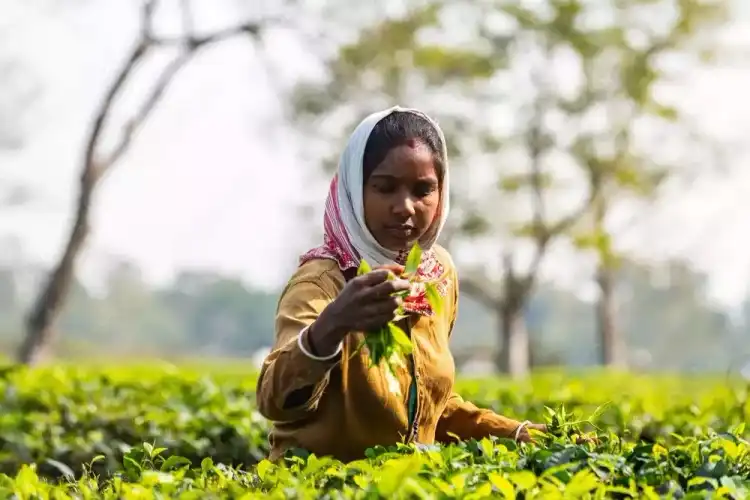Assam: Land of Diversity, Culture, and Natural Beauty
Introduction
Assam, nestled in the northeastern part of India, is a state of remarkable diversity, celebrated culture, lush landscapes, and a rich historical tapestry. This comprehensive overview, spanning approximately 2000-2500 words, delves into the demography, culture, science and technology, art and culture, geography, history, notable poets and authors, cuisine, business, medical facilities, and administrative structure of Assam.
Demography
Assam's demography is marked by its multicultural population, indigenous communities, and vibrant traditions.
Population Diversity
The state is home to a diverse array of ethnic groups, including Assamese, Bodo, Mishing, and numerous others.
Languages
Assamese is the official language, but numerous languages are spoken, such as Bodo, Bengali, and English.
Religions
Assam is religiously diverse, with Hinduism, Islam, Christianity, and various indigenous beliefs coexisting.
Culture
Assam's culture is a colorful tapestry woven from a myriad of traditions, festivals, and performing arts.
Festivals
Bihu is the state's most prominent festival, celebrated with dance, music, and feasts. Other festivals include Durga Puja, Eid, and Christmas.
Music and Dance
Bihu dance and traditional Assamese music are integral to the state's cultural expression.
Art and Craft
Assam is known for its intricate silk production, with Muga and Eri silk being specialty products. The state also boasts skilled artisans who craft exquisite products.
Science and Technology
Assam is making strides in scientific research and technological development.
Educational Institutions
The state is home to educational institutions like Gauhati University and the Indian Institute of Technology (IIT) Guwahati, contributing to research and innovation.
Biotechnology
Assam is emerging as a biotechnology hub, with research and developments in the sector.
Geography
Assam's geography is characterized by its fertile plains, rolling hills, and the mighty Brahmaputra River.
Brahmaputra River
The Brahmaputra flows through Assam, shaping its landscape and supporting agriculture.
Hills and Forests
The state is blessed with the Shillong Plateau and dense forests, including the famous Kaziranga National Park.
Tea Gardens
Assam is renowned for its tea gardens, producing some of the finest teas in the world.
History
Assam's history is a fascinating blend of ancient kingdoms, British colonial rule, and contributions to the Indian independence movement.
Ancient Kingdoms
Assam was once ruled by powerful dynasties like the Ahoms, who left an indelible mark on the state's history.
British Colonial Era
Assam became a part of British India in the 19th century, leading to economic developments and tea cultivation.
Independence Movement
Assam played a role in the Indian independence movement, with leaders like Gopinath Bordoloi contributing significantly.
Poet/Author
Assam has a rich literary tradition, with poets and authors who have made significant contributions to Indian literature.
Bhupen Hazarika
Bhupen Hazarika, a celebrated poet, musician, and filmmaker, is known for his contributions to Assamese art and culture.
Jyoti Prasad Agarwala
Jyoti Prasad Agarwala, a multifaceted personality, made noteworthy contributions to Assamese literature, music, and film.
Cuisine
Assamese cuisine is a unique fusion of flavors and textures, showcasing the state's rich culinary heritage.
Rice
Rice is the staple food, and dishes like Assam Laksa, Masor Tenga, and Assam Tea are local favorites.
Bamboo Shoots
Bamboo shoots are a common ingredient in Assamese cuisine, adding a distinct flavor to dishes.
Business
Assam's economy is marked by agriculture, tea production, oil, and attempts to promote industry and tourism.
Agricultur
The state's fertile land supports the cultivation of rice, tea, jute, and a variety of fruits and vegetables.
Tea Production
Assam is the largest tea-producing region in India, with its tea being exported worldwide.
Tourism
The state is promoting tourism, with attractions like Kaziranga National Park, Majuli Island, and the Kamakhya Temple.
Medical Facilities
Assam offers a network of healthcare facilities, including government and private hospitals.
Government Healthcare
Assam has government-run hospitals and medical colleges, such as Gauhati Medical College and Hospital.
Private Healthcare
Private hospitals, multi-specialty clinics, and healthcare centers offer advanced medical services to residents.
Administrative Structure
Assam's administrative structure is organized in accordance with the Indian federal system.
State Government
The state has a legislative assembly and a Chief Minister, with the Governor representing the President of India.
Districts
Assam is divided into multiple districts, each with its own Deputy Commissioner responsible for local administration.
Judiciary
The Gauhati High Court is the highest judicial authority, handling legal matters in the state. District courts and specialized tribunals are also part of the judicial system.
Law Enforcement
Law and order in Assam are maintained by the Assam Police, with a Director General of Police overseeing law enforcement.
In conclusion, Assam, with its cultural diversity, historical significance, and breathtaking natural beauty, is a state that embraces tradition while welcoming progress. The state's contributions to literature, art, and its distinct cuisine make it a vibrant and culturally rich region. As Assam strives to balance economic development and environmental conservation, it remains a symbol of India's dynamic spirit and deep-rooted cultural heritage.
